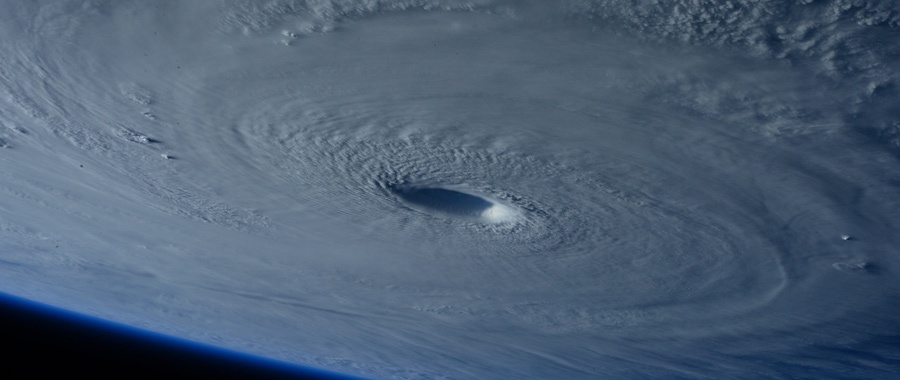The views expressed in our content reflect individual perspectives and do not represent the authoritative views of the Baha'i Faith.
Polls show that the majority of people now accept this single scientific fact: our planet has warmed over the past century. But does that fact portend impending disaster, or just longer, sweatier summers?
This one crucial issue has generated an enormous amount of controversy, because it defines the difference between mere inconvenience and potentially catastrophic future consequences. Of course, we won’t know the exact answer for a while, predictions about the future being what they are.
However, the current science does offer some strong prognostications about the Earth’s warming trend and what that increased heat will eventually mean for the planet and its people. If you follow the scientific warnings carefully, you’re undoubtedly worried.
But a commenter here on BahaiTeachings.org recently questioned those scientific forecasts when he wrote: “climate change has failed to produce the catastrophic warming predicted by climate models.”
The Baha’i teachings suggest a peaceful, collaborative method called consultation for resolving these kinds of differences of opinion. In that process, all the participants agree to examine the facts of the matter first, with the goal of seeking the truth and thereby determining a factual, agreed-upon basis for further discussion and decision-making.
… it is imperative that we should renounce our own particular prejudices and superstitions if we earnestly desire to seek the truth. Unless we make a distinction in our minds between dogma, superstition and prejudice on the one hand, and truth on the other, we cannot succeed. When we are in earnest in our search for anything we look for it everywhere. This principle we must carry out in our search for truth.
Science must be accepted. No one truth can contradict another truth. – Abdu’l-Baha, Paris Talks, pp. 136-137.
So in that spirit, let’s examine the commenter’s premise and see if we can determine whether it is true, false, or somewhere in between. First, what’s a climate model?
Many different types of climate models exist, but in the simplest terms, a climate model uses quantitative scientific methods to mathematically simulate the interactions of the important drivers of climate – the sun’s energy, the atmosphere, sea and land surface, the extent of sea- and land-based ice, etc. After taking all of these factors and several others into consideration, a robust climate model quantifies the amount of incoming energy from the sun and outgoing long wave infrared electromagnetic radiation that refracts back into space, and then attempts to measure the imbalance between the two – which results in predicted future average temperatures.
Scientists have built various kinds of climate models for many decades now. As that research has progressed, climate models have gone from relatively simple and significantly variable in the early days of the science, to more complex and more accurate as the science has advanced. The public agencies who develop and use these models – many large universities; the meteorological services of most countries; and the large national and international research laboratories like the National Center for Atmospheric Research or NCAR, in Boulder, Colorado, the Geophysical Fluid Dynamics Laboratory or GFDL in Princeton, New Jersey, and the Max Planck Institute for Meteorology in Hamburg, Germany – all belong to the World Climate Research Programme or WCRP, hosted by the World Meteorological Organization (WMO), which coordinates the world’s research activities on climate modelling. If you’d like to know more, visit the interactive Empirical Climate Model, which allows users to better understand the science of climate modeling.
The common criticism, that past climate models failed to accurately predict future surface temperatures, has a built-in intention: to sow distrust in science itself. After all, the criticism suggests, if some past models proved inaccurate, shouldn’t we mistrust all future models, and ignore their conclusions?
Our friend the commenter could certainly cite other opinions that use this same logic to back up his claim that “climate change has failed to produce the catastrophic warming predicted by climate models.” That’s because several early climate models did predict that dire, catastrophic consequences could occur by now, and some, like the conservative Hoover Institute, have challenged the accuracy and efficacy of those models.
However, the Hoover Institute analysis does not explain the entire picture. A respected British non-profit journalistic site, CarbonBrief.org, did a large retrospective analysis of all of the most prominent climate modeling data between 1973 and 2016, comparing what the models predicted versus the eventual temperatures that actually occurred. The scientists who did that analysis reached this conclusion:
While some models projected less warming than we’ve experienced and some projected more, all showed surface temperature increases between 1970 and 2016 that were not too far off from what actually occurred, particularly when differences in assumed future emissions are taken into account. – Analysis: How well have climate models projected global warming?
Another significant retrospective study, done at the Max Planck Institute in Germany and published in the prestigious scientific journal Nature, examined an entire century’s worth of data to determine whether climate modelling has overestimated temperature increases. It concluded that:
The claim that climate models systematically overestimate the response to radiative forcing from increasing greenhouse gas concentrations therefore seems to be unfounded. – Forcing, feedback and internal variability in global temperature trends
Of course, these two extensive studies only represent the tip of the virtual iceberg. Entire books have been and are being written about these issues, so the discussion will likely go on for some time, and no short series of essays can possibly do the subject justice. However, the preponderance of scientific evidence at this point supports the relative accuracy of most climate modelling – which indicates that the predictions now being made will also accurately predict the Earth’s future surface temperature.
Those climate modelling predictions, most of which forecast much higher temperature averages for much of the Earth’s surface, indicate that we face potentially catastrophic impacts on most of the world’s population – unless we take serious, significant steps to mitigate those impacts now. We must not only take those steps, we must do so on a global basis.
In that case, those who accept the science must move beyond talk into action:
Rhetoric articulating appreciation for the environment, concern for future generations, and well-being for all, rings hollow when unmatched by ethical behavior and policy. Achieving such coherence requires more than science and logic – it requires courage and sacrifice.
If steps in this directions are not taken, it is too easy to fall back into the well trodden paths that have brought us to this point. Compromises allow an unjust and unsustainable system to endure, expediency becomes valued over the needs of the most vulnerable, and the inertia of the status quo drives humanity to the limits of the earth’s resources. Given the degree of transformation required, we must not wait for more tragedy before taking the courageous steps necessary. – “To Address Climate Change, Ensure Coherence Between Principle and Action,” the Baha’i International Community, statement issued to the United Nations Climate Summit, 20 September 2019.
















Comments
Sign in or create an account
Continue with Googleor